These changes are a new “medicine” that motivates the grassroots medical and preventive medicine teams - the frontline forces in community health care.
Increase allowance from 70% to 100%
One of the important contents in Resolution 72-NQ/TW of the Politburo on a number of breakthrough solutions to strengthen the protection, care and improvement of people's health is the special and outstanding preferential policy on occupational allowances, helping to improve income and attract human resources.
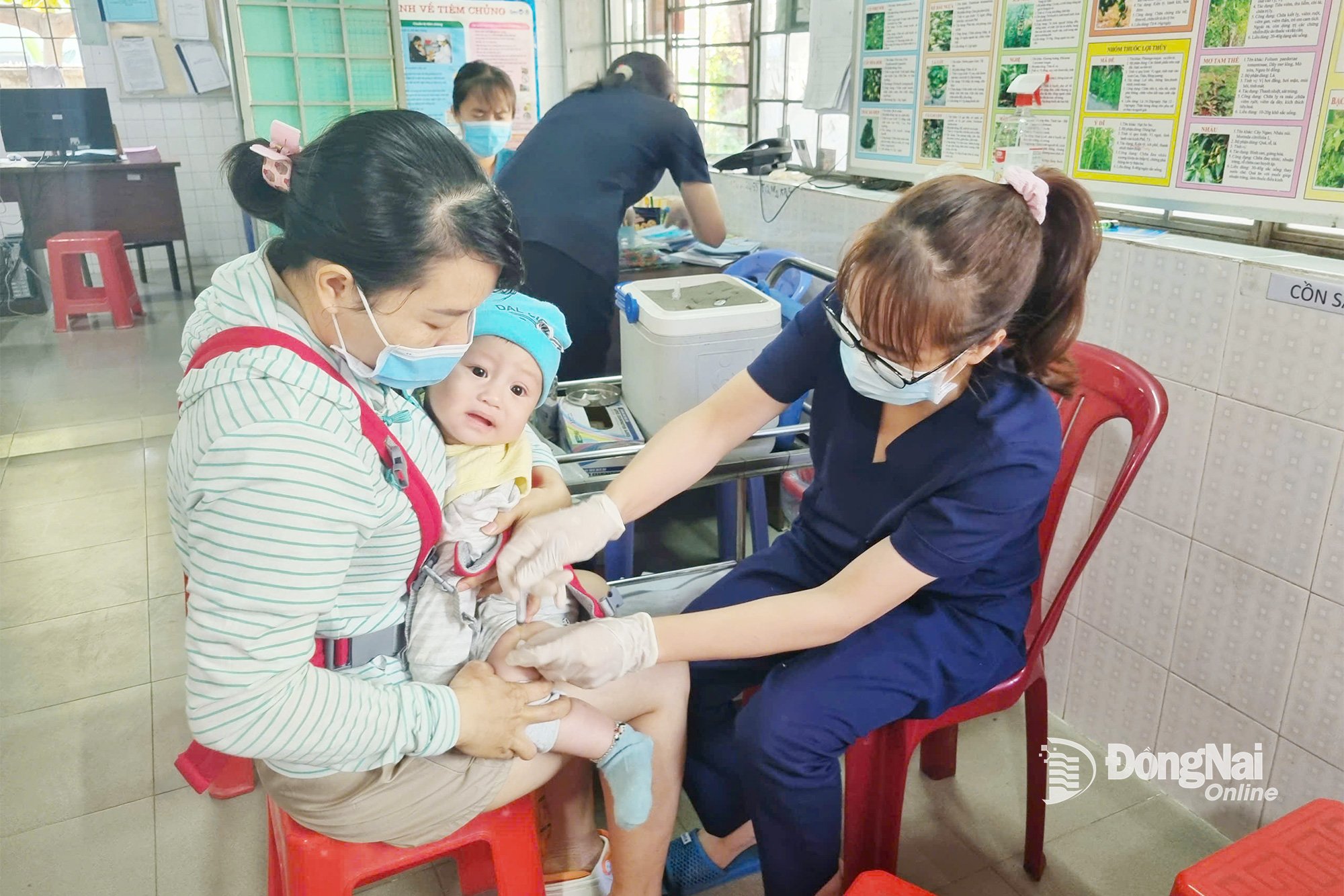 |
| According to Resolution 72 of the Politburo , people who regularly and directly work in medical professions at commune-level health stations and preventive health facilities will have their professional allowance increased to at least 70%. In the photo: Vaccination for children at Trang Dai Ward Health Station. Photo: Bich Nhan |
Although working at the grassroots level, Dr. Le Thi Du studied to become a specialist 1 to improve her expertise. For the past 32 years, Dr. Du has been attached to Phu Dien Medical Station, old Tan Phu district, now Phu Dien Medical Station, Dinh Quan Regional Medical Center, Dong Nai province. At times, Phu Dien Medical Station (old) received 60-80 patients/day. The reason is that the station has both a specialist 1 doctor and investment in facilities such as ultrasound machines, electrocardiogram, acupuncture, etc., so patients are quite assured. As a doctor working at the grassroots level, Dr. Du's allowance is 40%, plus some other allowances, Dr. Du's total income is currently 17 million VND/month.
According to Dr. Du, in addition to the professional allowance, for more than 2 years now, she has also received an additional allowance from the province according to Resolution 34 (Resolution 34/2022/NQ-HDND regulating the support regime for medical human resources in Dong Nai province for the period 2023-2025), so her income has increased significantly. However, this allowance level is still not really attractive in attracting or retaining doctors at the station level.
"In order for doctors to work closely with the station, in addition to income, sufficient medicine, medical supplies and investment in modern machinery and facilities are essential because the need for medical examination and treatment of the people is increasing. Currently, almost only the elderly, those with underlying diseases, and those who cannot travel far come to the medical station," Dr. Du shared.
Specialist Doctor 2 Le Quang Trung, Deputy Director of Dong Nai Province Department of Health, said: The most difficult thing now is not building new medical stations or buying modern equipment but high-quality resources. Resolution 72 of the Politburo is a timely solution in the context of increasing demand for primary health care, epidemic prevention and chronic diseases.
In addition to the benefits from Resolution 72, the Deputy Director of the Department of Health hopes that the province will continue to implement Resolution 34/2022/NQ-HDND regulating the support regime for medical human resources in Dong Nai province for the period 2023-2025 in the coming period.
As a young doctor, Dr. Hoang Thi Xuan Thanh, Department of Disease Control, Bien Hoa Regional Medical Center has been working in preventive medicine for 3 years. About 9 years ago, Dr. Xuan studied "Training program for full-time medical and pharmaceutical university students according to the address of use in Dong Nai province" at Can Tho University of Medicine and Pharmacy with a major in preventive medicine.
Doctor Thanh confided: “When I was still in school, the field of prevention was quite new. But through practical work, I found my job quite interesting. This job has the meaning of being a “shield” for people’s health. When doctors are specialized and do good prevention, it will limit serious cases and reduce pressure on the treatment system.”
Increase benefits, "shake up" primary and preventive healthcare
Since graduating, Dr. Thanh's main job has been in the field of prevention: epidemic prevention, vaccination. Like many other professions, Dr. Thanh is ranked as level 1 salary and receives 80% in the first year. Currently, Dr. Thanh only receives the main salary, does not work extra in clinics or open clinics after hours like doctors studying treatment. According to Dr. Thanh, this is also the reason why many young people "prefer" to study treatment over prevention.
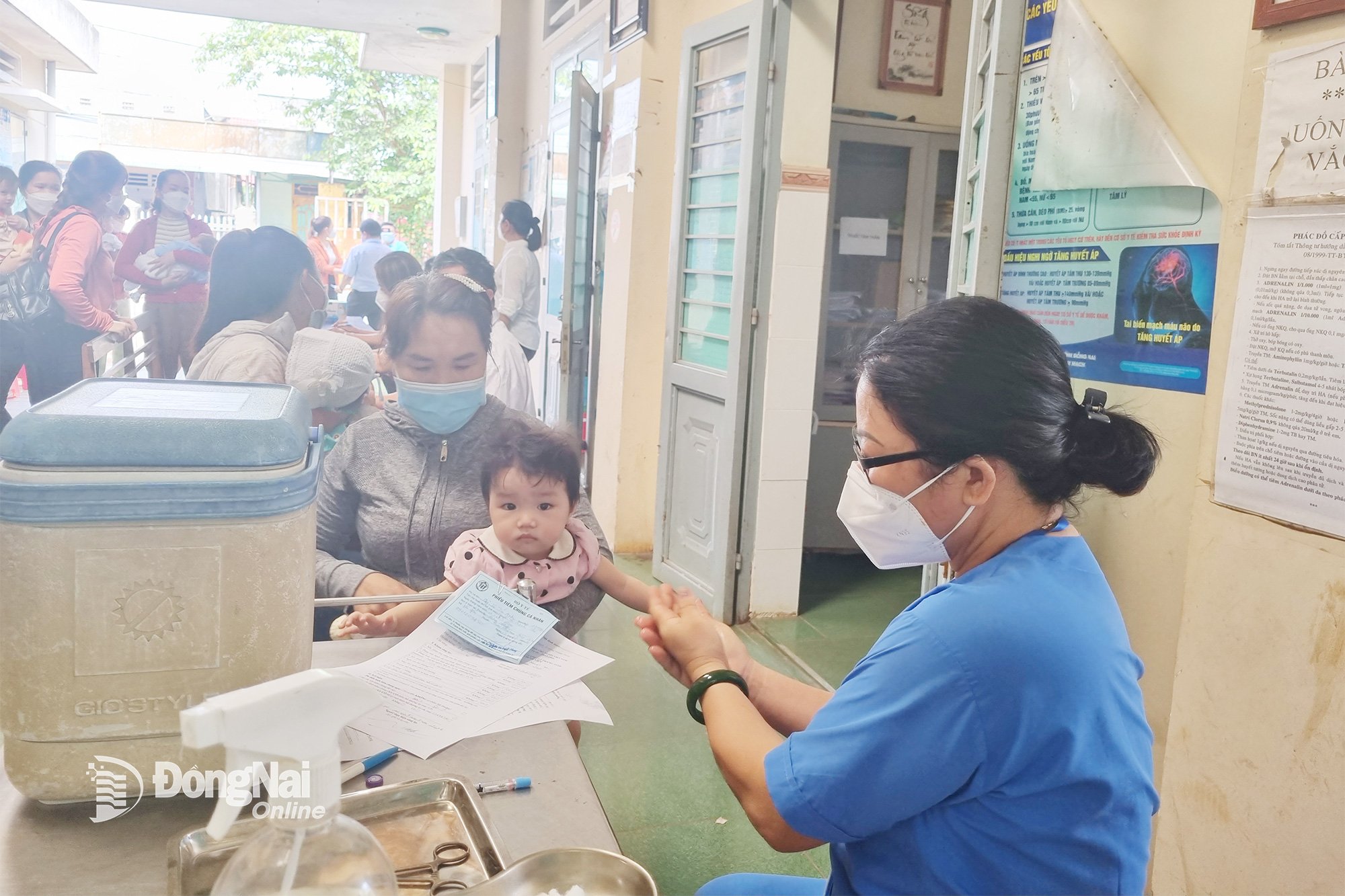 |
| A doctor examines a child's health before vaccination at Hung Loc Medical Station, Dau Giay Commune. Photo: Bich Nhan |
However, with the new points of Resolution 72, doctors, preventive medicine doctors, pharmacists are ranked from level 2 salary when recruited, instead of level 1 as at present. This is considered a breakthrough to improve income, encourage medical and pharmaceutical students to work at the grassroots and preventive levels - where work pressure is high but benefits are limited.
“Compared to the 6-year medical school period, doctors receiving a second-level salary right after graduation will be more stable. The increase is not too large but it is still a motivation for young people,” Dr. Thanh shared.
According to specialist 2 Le Quang Trung, Deputy Director of Dong Nai Province Department of Health: Currently, Dong Nai Health sector still lacks doctors, especially doctors in the preventive system. In recent years, there have been many factors that "prevent" doctors from studying preventive systems or working at health stations. The main reason is that doctors at the station level are quite disadvantaged because they cannot "do" what they have "learned". Each station has almost only 1 doctor, so they have to take on all the activities of the whole unit, so the time to study and improve their expertise is also limited.
“Opportunities for doctors at the medical station to study and improve their skills are limited because the list of drugs and techniques prescribed by the Ministry of Health is only at the initial examination and treatment level. Therefore, in terms of equipment and drugs, there will be a greater shortage compared to medical centers and hospitals. From here, doctors are also concerned about the reduction of professional qualifications, making it difficult to attract doctors to the medical station,” said Dr. Trung.
In addition, there are still few students in majors such as prevention and nutrition, so the medical sector has difficulty recruiting and always lacks preventive doctors. However, with the innovations of Resolution 72, the policy of increasing medical career incentives up to 100% for those who directly work in difficult areas or in specific fields will help retain human resources, reduce the situation of quitting jobs and transferring from the grassroots level.
Bich Nhan
Source: https://baodongnai.com.vn/xa-hoi/202509/nghi-quyet-72-tao-dong-luc-cho-doi-ngu-y-te-co-so-va-y-te-du-phong-73c0ad6/



![[Photo] Prime Minister Pham Minh Chinh meets with representatives of outstanding teachers](https://vphoto.vietnam.vn/thumb/1200x675/vietnam/resource/IMAGE/2025/11/15/1763215934276_dsc-0578-jpg.webp)


![[Photo] General Secretary To Lam receives Vice President of Luxshare-ICT Group (China)](https://vphoto.vietnam.vn/thumb/1200x675/vietnam/resource/IMAGE/2025/11/15/1763211137119_a1-bnd-7809-8939-jpg.webp)



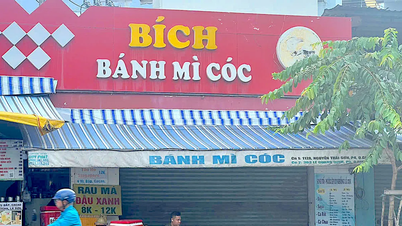

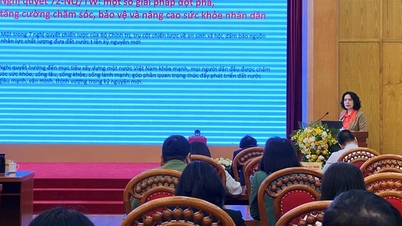




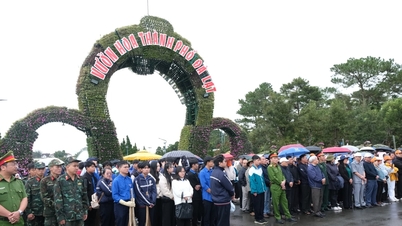

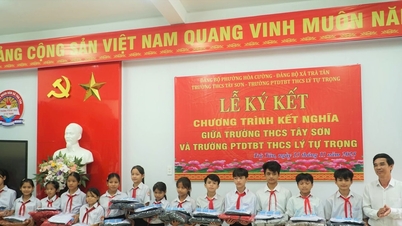

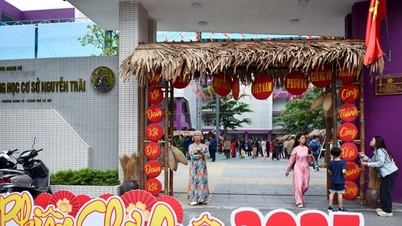

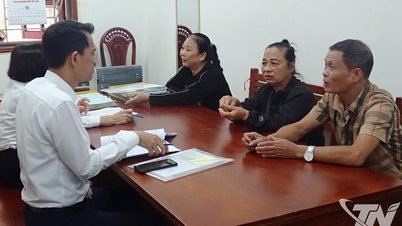









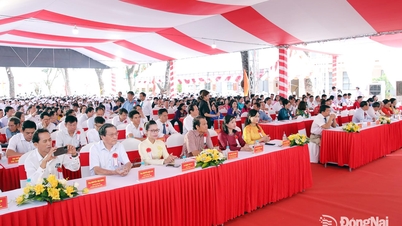
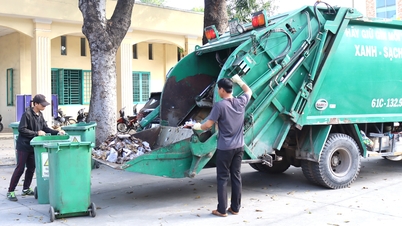

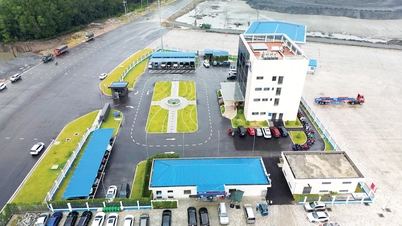
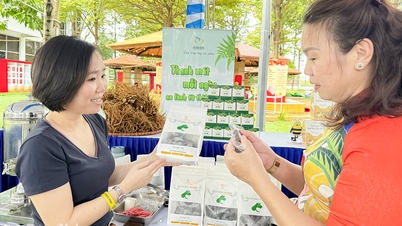


















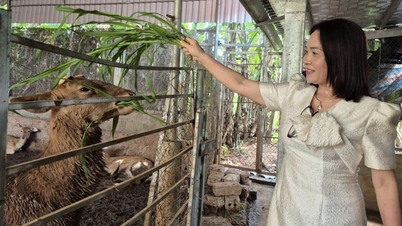





















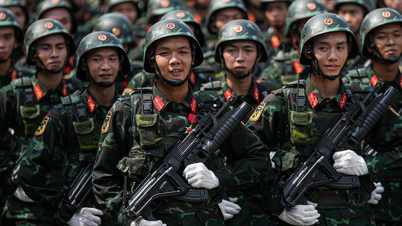

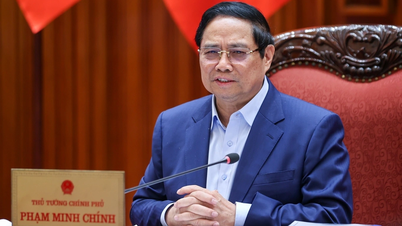
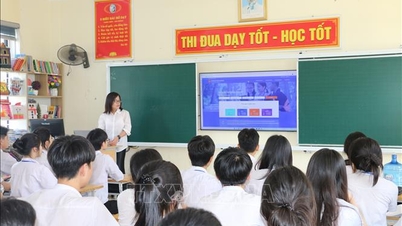

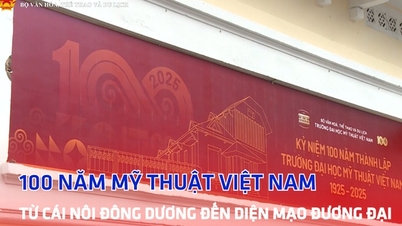

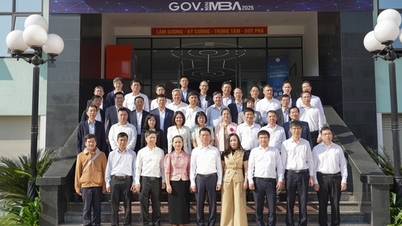

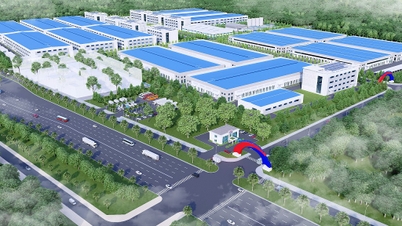





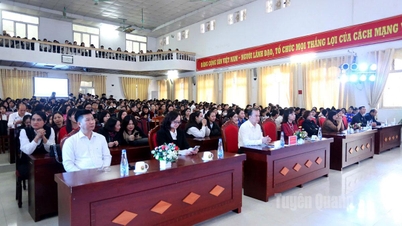

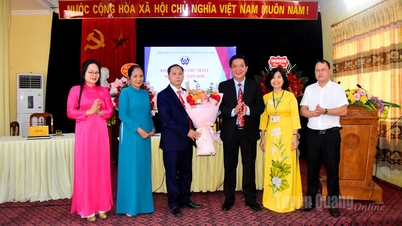
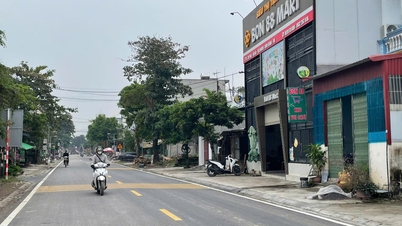














Comment (0)